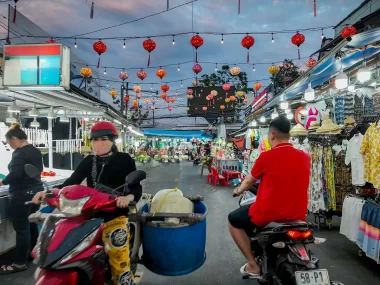Business travel has become an integral part of corporate life, offering opportunities for face-to-face meetings, networking, and expanding global connections. As companies continue to prioritize in-person interactions, mastering the art of efficient business travel is crucial. In this comprehensive guide, we’ll explore ten essential strategies to transform your corporate journeys into seamless, productive experiences.
You may be interested to know how capital one travel can help your business travel.
1. Craft a Comprehensive Business Travel Policy
A well-defined business travel policy is the foundation of successful corporate travel management. This document should outline:
- Booking procedures and preferred vendors
- Expense guidelines and reimbursement processes
- Safety protocols and emergency procedures
- Sustainability initiatives
By creating clear guidelines, you’ll streamline the travel process and ensure consistency across your organization.
2. Leverage Smart Booking Tools
Embracing technology can significantly enhance your business travel experience. Utilize advanced booking platforms that offer:
- Real-time pricing and availability
- Integration with your company’s travel policy
- Expense tracking and reporting features
- Mobile accessibility for on-the-go management
These tools not only save time but also help control costs and improve overall travel efficiency.
3. Prioritize Traveler Safety and Well-being
In today’s dynamic travel landscape, prioritizing employee safety is paramount. Implement robust safety measures, including:
- Real-time travel risk alerts
- 24/7 emergency support
- Pre-trip health and safety briefings
- Access to medical assistance and insurance coverage
By demonstrating a commitment to traveler well-being, you’ll boost employee confidence and productivity during business trips.
4. Embrace Flexibility in Travel Plans
The business world is unpredictable, and your travel plans should be able to adapt. Consider:
- Booking flexible fares and accommodations
- Utilizing travel insurance for added protection
- Allowing buffer time between meetings and flights
- Empowering employees to make necessary changes on the go
Flexibility can turn potential travel disruptions into manageable situations, ensuring your business objectives remain on track.
5. Optimize Packing Strategies for Business Travel
Efficient packing is an art that every business traveler should master. Here are some tips:
- Invest in quality, versatile business attire
- Use packing cubes for organization
- Stick to carry-on luggage when possible
- Pack essential tech and chargers in easily accessible locations
By streamlining your packing process, you’ll reduce stress and increase productivity during your trip.
6. Maximize Productivity During Transit
Turn travel time into productive work sessions with these strategies:
- Utilize airport lounges for quiet workspaces
- Invest in noise-canceling headphones
- Use mobile hotspots for reliable internet access
- Prepare offline work for flights without Wi-Fi
By making the most of your transit time, you’ll arrive at your destination ahead of the game.
7. Implement Sustainable Business Travel Practices
As corporate responsibility becomes increasingly important, integrate sustainability into your business travel program:
- Choose eco-friendly transportation options
- Stay at hotels with strong sustainability practices
- Offset carbon emissions from flights
- Encourage virtual meetings when feasible
These efforts not only benefit the environment but also enhance your company’s reputation.
8. Leverage Loyalty Programs and Corporate Discounts
Maximize the value of your business travel by:
- Enrolling in airline and hotel loyalty programs
- Negotiating corporate rates with preferred vendors
- Using travel rewards credit cards for additional perks
- Consolidating bookings to accumulate points faster
Smart use of loyalty programs can lead to significant cost savings and improved travel experiences.
9. Prioritize Health and Wellness on the Road
Maintaining health and wellness during business travel is crucial for peak performance:
- Schedule time for exercise and proper meals
- Stay hydrated, especially during flights
- Practice good sleep hygiene in different time zones
- Consider meditation or mindfulness apps for stress management
By prioritizing well-being, you’ll ensure consistent performance throughout your trip.
10. Conduct Post-Trip Evaluations and Feedback
Continuous improvement is key to optimizing your business travel program:
- Gather feedback from travelers after each trip
- Analyze travel data to identify cost-saving opportunities
- Review and update your travel policy regularly
- Stay informed about industry trends and best practices
By implementing a cycle of evaluation and improvement, you’ll ensure your business travel strategies remain effective and up-to-date.
Mastering business travel is an ongoing process that requires attention to detail, flexibility, and a commitment to continuous improvement. By implementing these ten essential strategies, you’ll transform your corporate journeys into seamless, productive experiences that benefit both your employees and your bottom line. Remember, successful business travel is not just about reaching your destination—it’s about arriving prepared, focused, and ready to achieve your business objectives.






